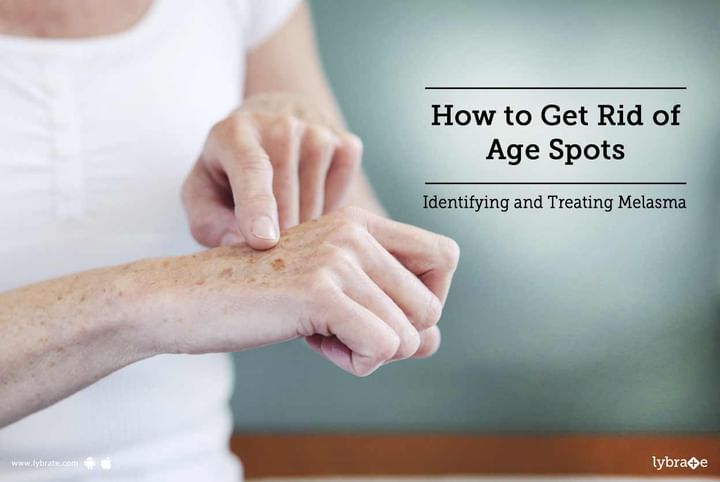How to Get Rid of Age Spots: Identifying and Treating Melasma
Melasma is a condition in which dark and discoloured patches appear on the face. It is also commonly known as chloasma when it is found in pregnant women. This is a condition that can be found in women more commonly than it is found in men. Let us cast a glance on the symptoms, causes, as well as the ways of identifying and treating this condition.
Identifying Melasma
Typically Melasma is characterized by brownish coloured patches that may appear on the cheeks, forehead, chin and even the bridge of the nose. These patches are usually symmetrical on either sides of the face. They appear blotchy, of irregular shape and their colour can vary from light brown to dark brown. They may occasionally occur on other parts of the body that are left exposed to the sun for prolonged hours, on a regular basis. These symptoms can help you in identifying the condition, in which case you must immediately see a dermatologist who will help in formal diagnosis and immediate treatment.
Causes
Several causes have been proposed for Melasma. Sensitivity to estrogen and progesterone are found in some cases especially during pregnancy or in women who take birth control and other hormonal pills for any other ailment. Constant exposure to the sun can also alter the cells that create and control one’s pigment - also known as ‘melanocytes’.
Diagnosis
The diagnosis of Melasma is done with the help of physical examination. Thereafter, the doctor may perform the wood’s lamp examination where a light is held up against the skin to look for the depth of involvement. A biopsy may be conducted for more severe cases by taking skin samples.
Treatment
Most women report that Melasma disappears on its own. These patches slowly fade once the pregnancy control pills and hormonal therapy stop. The dermatologist can also ask you to use a good sunscreen and .certain medicated creams that can help in fading the patches to a great extent. Also, chemical peels and microdermabrasions are other mild procedures that can be carried out in such cases, to exfoliate the top layer of the skin.
In resistant cases of dermal melasma, Q switched Nd YAG laser can be done. One must remember that these ointments and procedures will not guarantee that the condition will not recur in the future. Melasma can be treated effectively but often requires maintenance to prevent recurrence. If you wish to discuss about any specific problem, you can consult a Dermatologist.



+1.svg)
